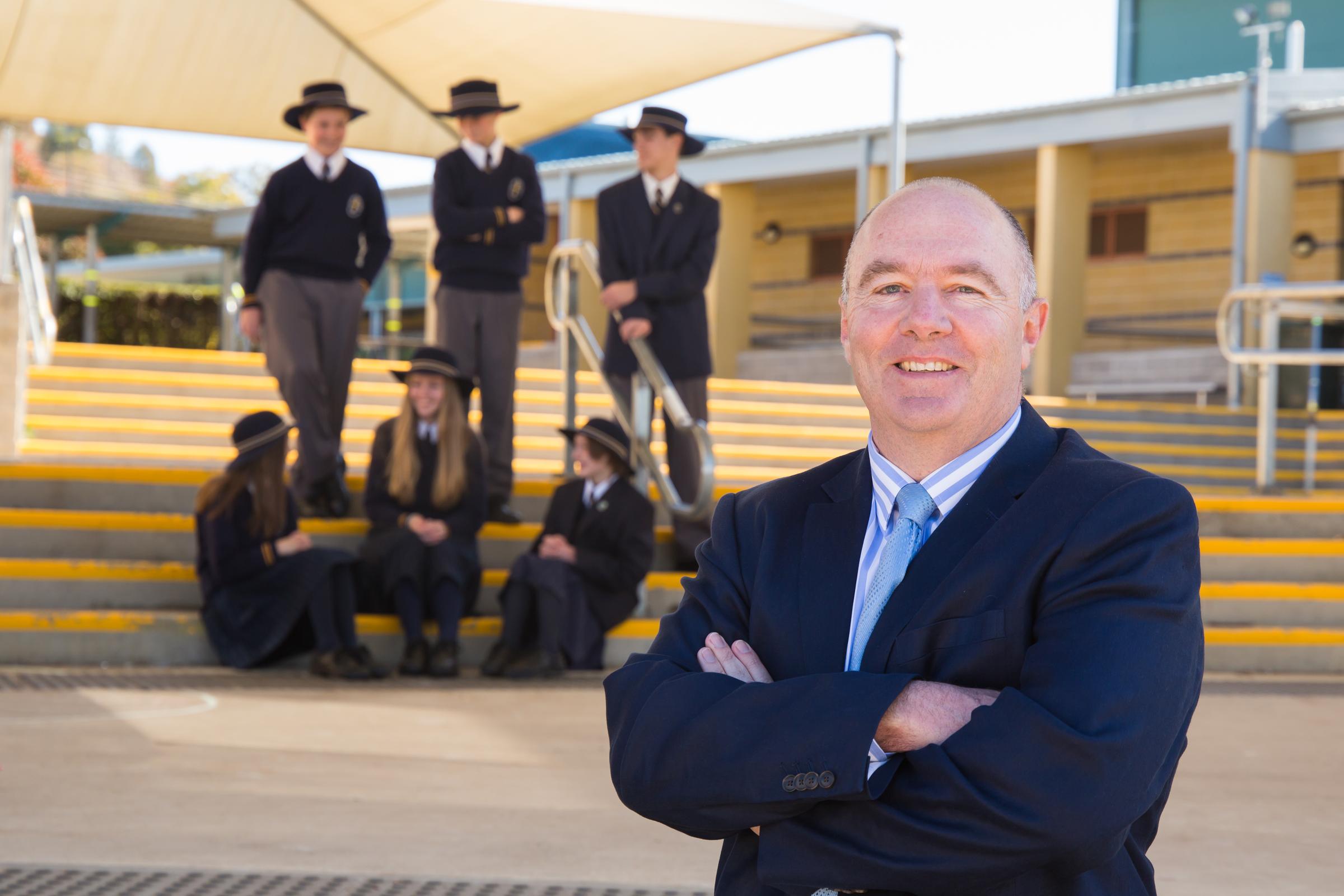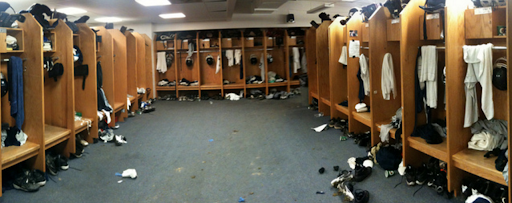Assistant Principal - Pastoral Care

Small Things Matter
I am a big believer in the idea that if you attend to the small things in life that the larger will take care of themselves.
Johnathan Thurston’s journey as a footballer and man has intrigued me. Watching his growth over his career has been most instructive; I believe he personifies the concept that ‘small things matter’. Football clubs will often have children invited to form a tunnel for players as they run out onto the ground. It is good PR for the clubs and provides a cute image for the cameras. Most of the players are fixated on the performance before them as they run onto the field. But Thurston would always stoop to touch the hands of the adoring children – no matter how big the occasion, no matter how significant the game ahead, he took the time to recognise the children, to ensure that they would cherish this moment because he acknowledged them personally.
I then noticed that this extended to his goal kicking. Traditionally kickers would make their attempt at goal and then run back into position. Thurston changed this. After completing a kick, he would retrieve the kicking tee and hand it to the child responsible for collecting it. A small act that said a great deal. It said that I’m not too important to ignore courtesy and show humility by doing the humblest of acts. Then in 2017, when injured during the Cowboy’s scintillating run through the finals, Thurston would be seen in the team dressing room post-game cleaning up after his team mates - putting tape and bottles in the bin, used towels in a basket and handing out drinks to the exhausted players. Each of these actions were ‘small’ in the larger scheme of things but they were powerful expressions that indicated the quality of the man.
Similar stories abound about Richie McCaw, the great All Black’s captain and flanker, arguably one of the greatest to wear the famed jersey. Part of the All Blacks culture is to ensure that players understand the concept that team is much more important than the individual. As a consequence, team members are rostered on to the clean-up of the dressing sheds following a game. Even the great Richie McCaw, after a man of the match performance, was seen with a broom in hand cleaning the sheds, battered and bruised from his efforts, but putting team ahead of personal comforts to the end. The All Blacks are considered one of the most successful sporting teams in the world and it is because they attend to ‘small things’.
So how does the world of professional sport relate to school experiences here in Tamworth? Plenty. One of the main purposes of sport is to help socialise us and prepare us to cope in society. As a student, getting the ‘small things’ right can go a long way to building habits that enable personal success.
For a student, this commences with the uniform. Wearing the uniform correctly becomes an important expression that ‘I am a part of this community and I value this community and I will do my part to support it’. So often I come across students who are wearing incorrect socks, jumpers or no tie, shirts out or sports uniform on the wrong day. Invariably they will justify their choices by arguing it doesn’t matter, that it is only a small thing and they think it is unreasonable for someone to make a fuss. The corollary of course is that if it is such a small thing why not do it correctly? Which leads you to the nub of the problem – self-centredness and selfishness. It is not what I want to do. Not surprisingly, these students generally have problems elsewhere in the school community: they may be often late to class, don’t complete homework, don’t follow the phone policy, chew gum, wear inappropriate jewellery, interrupt the learning of others, leave their refuse for others to collect. Each time their actions are an expression that they come before everyone else. How they impact on others is not really their concern.
When we seek to address the ‘small things’ as a school, it is not because we want to be picky, trivial or superficial in what matters. We are doing so knowing that as a young person develops, their values and attitudes are clearly announced to all by what they do and how they do it. The workplace today is very much a team environment and people who value self above all else will struggle to cope or survive.
There is a strong tradition in the USA for university graduation services to have an invited guest deliver what is called a commencement address. I assume they call it commencement because the graduates are commencing the next phase of their life. One of my favourite speeches was by a former Navy SEAL, Admiral William McRaven to University of Texas graduates in 2014. One of his points was:
“Every morning in basic SEAL training, my instructors, who at the time were all Vietnam veterans, would show up in my barracks room and the first thing they would inspect was your bed. If you did it right, the corners would be square, the covers pulled tight, the pillow centered just under the headboard and the extra blanket folded neatly at the foot of the rack—that's Navy talk for bed.
It was a simple task, mundane at best. But every morning we were required to make our bed to perfection. It seemed a little ridiculous at the time, particularly in light of the fact that were aspiring to be real warriors, tough battle hardened SEALs, but the wisdom of this simple act has been proven to me many times over.
If you make your bed every morning you will have accomplished the first task of the day. It will give you a small sense of pride and it will encourage you to do another task and another and another. By the end of the day, that one task completed will have turned into many tasks completed. Making your bed will also reinforce the fact that little things in life matter.
If you can't do the little things right, you will never do the big things right.
And if by chance you have a miserable day, you will come home to a bed that is made—that you made—and a made bed gives you encouragement that tomorrow will be better.
If you want to change the world, start off by making your bed.”
As always, we will only be successful in helping our young people when home and school are in sync with each other. If either parents or school turn a blind eye to the ‘small things’ because it is difficult or burdensome then the ones to suffer will be the children in our care. Pope Francis made a profound statement about the necessity for parents to support schools:
“Without respectfully collaborating with teachers and schools, parents will risk being on their own when it comes to educating their children and be at a greater disadvantage for facing the challenges emerging from today’s culture, mass media and technology”, Pope Francis said.
Speaking to hundreds of parents, the Pope told them that “teachers are like you - dedicated each day in the educational service of your children.”
Learning takes place in a multiplicity of ways in a school community, getting the small things right inevitably leads to young people being confident to confront the more demanding tasks of learning. Such a disposition sets a young person up for life … and that is what education is all about.
Mr Mick Larkin - Assistant Principal - Pastoral Care


